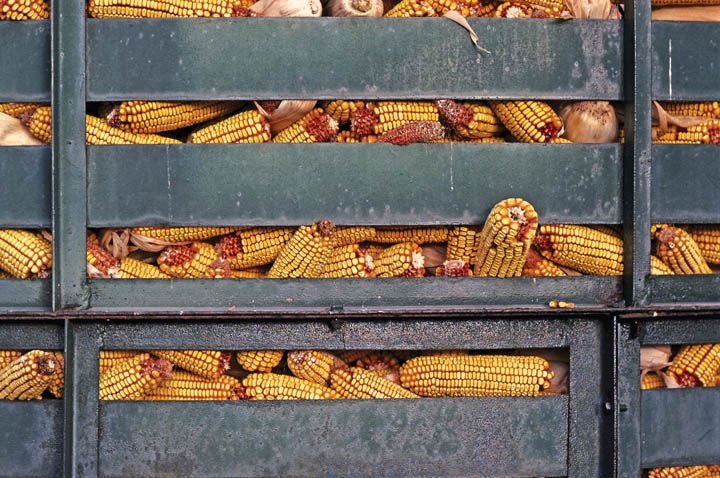
Self-made billionaire, software magnate and philanthropist Bill Gates may not know everything about agriculture, but when it comes to addressing the problem of world hunger, he understands the meaning of making sound investments in the future.Gates believes managing soils and tools like drip irrigation can help grow more food to meet world demand in the years ahead, and says the $3 billion spent each year on agriculture crop research isn’t enough.

Self-made billionaire, software magnate and philanthropist Bill Gates may not know everything about agriculture, but when it comes to addressing the problem of world hunger, he understands the meaning of making sound investments in the future.
“Right now, just over 1 billion people—about 15 percent of the people in the world—live in extreme poverty. On most days, they worry about whether their family will have enough food to eat. There is irony in this, since most of them live and work on farms. The problem is that their farms…don’t produce enough food for a family to live on,” writes Gates in his Fourth Annual Letter, released online by the Bill and Melinda Gates Foundation.
Gates says “innovation is the key to improving the world” and agricultural research represents the best method to achieve that goal.
“In the 1960s and 1970s, in what is called the ‘Green Revolution,’ Norman Borlaug and other researchers created new seed varieties for rice, wheat, and maize (corn) that helped many farmers vastly improve their yields…food intake went up…the price of wheat dropped by two-thirds [and] saved countless lives and helped nations to develop,” he writes.
Saying technology holds the key to accelerating progress, Gates believes managing soils and tools like drip irrigation can help grow more food to meet world demand in the years ahead, and says the $3 billion spent each year on agriculture crop research isn’t enough. The 24-page letter suggests seed research points the way to providing enough food to feed not just the world today, but for generations to come.
The Gates Foundation has spent about $2 billion in the past five years to fight poverty and hunger in countries like Africa and Asia, and much of that money has gone toward improving agricultural productivity, including research into genetic engineering and plant breeding.
“Given the central role that food plays in human welfare and national stability, it is shocking—not to mention short-sighted and potentially dangerous—how little money is spent on agricultural research. This shortage of funds for research is particularly worrying because of the increasing prevalence of plant diseases,” Gates writes. “[When] The Rockefeller Foundation enticed Borlaug to move to Mexico, where he created new varieties of wheat that were resistant to a fungus called wheat stem rust…it was only after he got there that he figured out additional strategies to increase wheat productivity. Borlaug was always concerned that new forms of wheat rust would emerge.”
Gates writes that back in the 19th century most people in the United States worked in agriculture. But he notes that now less than 2 percent of the workforce is involved in farm ownership, and less than 15 percent of U.S. consumer spending goes to food. Farming issues rarely make the news he says, until crop diseases strike. He says agriscience holds the key to not only increasing productivity but also fighting diseases that have the potential of destroying crops and forcing farmers out of business.
Too little investment
“In total, only $3 billion per year is spent on researching the seven most important crops. This includes $1.5 billion spent by countries, $1.2 billion by private companies, and $300 million by an agency called the Consultative Group on International Agricultural Research (CGIAR),” the letter states, and this, says Gates, is not enough.
Gates says another area where scientists need to do a lot more study is the effects of climate change on agricultural productivity. He says there are varieties of rice and other crops that can deal with the higher temperatures and weather variations better than today’s plants, and that some plant varieties actually benefit from the increased carbon dioxide levels.
“There is no clear data on how significant this will be. Early greenhouse studies were very promising, but field studies have shown much smaller effects. The world must invest in a variety of techniques to help poor farmers deal with weather impacts better than they can today,” he says.
Gates adds there are reasons to believe that the chronic underfunding of research in agriculture is starting to change, however, and that there will be more breakthroughs in the future. He points to what he calls a revolution based on a better understanding of plant genes.
“The field of agriculture is just now in the process of figuring out how to take advantage of these tools, but it’s clear that they will greatly accelerate the pace of plant research. It is hard to overstate how valuable it is to have all the incredible tools that are used for human disease to study plants,” the letter reads.
The lengthy annual letter is mostly dedicated to advancing agriculture research, including genetic engineering and plant breeding, and argues that increased investment into agriculture research is necessary to the success of “feeding the multitudes” in the years ahead.
As the USDA, prompted by congressional demands to cut federal spending, culls the number of its research centers nationwide, Gates is calling for reason and forward thinking at a time when agricultural advancement holds the keys to the world future.
Gates’ letter can be found online at http://www.gatesfoundation.org/annual-letter/2012/Pages/home-en.aspx.
About the Author(s)
You May Also Like





